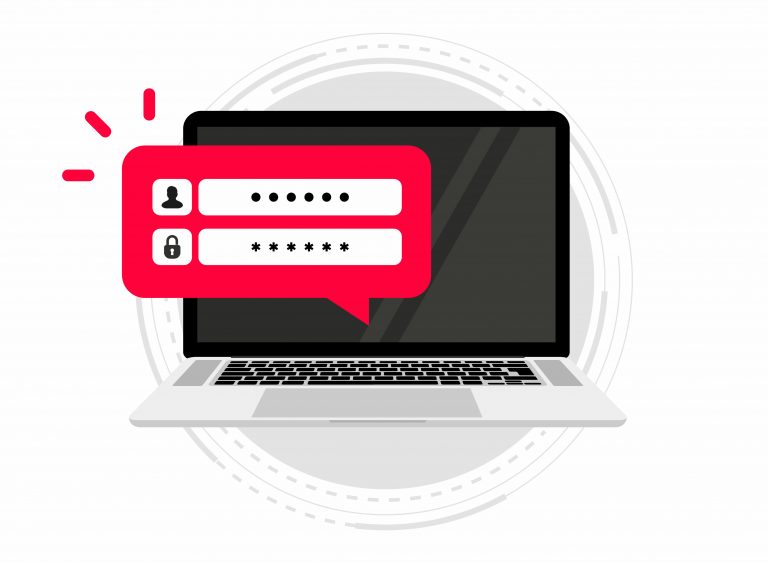Securing Your Health Data: Privacy Measures in Telemedicine
January 25, 2024Telemedicine has become an increasingly popular option for accessing healthcare services, allowing patients to consult with healthcare providers remotely. What…

In a world where cyber threats are becoming increasingly sophisticated, the importance of having strong passwords cannot be overstated. But what exactly makes a password hackable?
Creating strong passwords is essential for safeguarding sensitive information and preventing unauthorized access. Strong passwords significantly reduce the risk of personal and confidential data falling into the wrong hands. Conversely, weak passwords make it easier for cybercriminals to gain unauthorized access, posing threats to personal and financial security.
The hackability of a password is influenced by factors such as length, composition, susceptibility to phishing, and the use of common names or phrases. Longer passwords are more secure, as they increase complexity and resist brute force attacks. A strong password includes a mix of uppercase and lowercase letters, numbers, and special characters. Users should be cautious about phishing attacks, which can compromise passwords through deceptive emails and fake login pages. Avoiding common names or phrases is crucial, as they make passwords more vulnerable to exploitation by hackers.
Short passwords with limited characters are more susceptible to brute force attacks and compromise the security of the associated accounts.
When passwords are short, they can be cracked through automated software that systematically generates different combinations of characters until the correct one is found. This is known as a brute force attack, and it becomes increasingly effective with shorter passwords.
The length of a password is crucial in determining its level of security. Utilizing a combination of uppercase and lowercase letters, numbers, and special characters can further strengthen the security of a password by increasing the number of possible combinations that an attacker would need to try.
Passwords containing common words or phrases are vulnerable to dictionary-based attacks, making them more susceptible to unauthorized access and compromising security.
When individuals use familiar words, places, names, or easily guessable combinations in their passwords, they inadvertently expose themselves to cyber threats. These types of common passwords, are easily cracked by cybercriminals who use automated programs to systematically try every word in the dictionary and common phrases.
Using ordinary words or phrases in passwords can weaken the overall security of systems and networks, leaving sensitive data and personal information at risk of compromise. Therefore, it’s crucial to create strong, complex, and unique passwords that are not easily guessable and are less prone to dictionary-based attacks.
Incorporating personal information, such as names, birthdays, or addresses, into passwords increases the risk of compromise through social engineering or targeted attacks.
This practice makes it easier for attackers to guess or crack passwords, as they can use readily available information to exploit the vulnerabilities of an individual’s account security.
For example, using a combination of a person’s name and birthdate might seem personalized, but it can also be easily guessable by someone with malicious intent.
Incorporating personal information into passwords creates a significant vulnerability in the event of a data breach, leading to potential identity theft or unauthorized access to sensitive information.
Passwords featuring sequential or repeating characters are more susceptible to pattern-based attacks, undermining their effectiveness in protecting accounts from unauthorized access.
When users choose passwords like ‘123456’ or ‘password123’, they are opening themselves up to the threat of hackers who can easily crack such predictable patterns to create strong passwords.
Cybercriminals often deploy automated tools to carry out sequential character attacks, guessing passwords based on common patterns or sequences. By using passwords devoid of sequential or repeating characters, individuals can significantly bolster their defenses against such attacks, making it essential for users to opt for more complex and diverse combinations of characters.
Passwords lacking variation in character types, such as numbers or symbols, are more vulnerable to basic brute force and dictionary attacks, compromising the security of the associated accounts.
The absence of diverse characters in passwords reduces their complexity, making them easier targets for hacking attempts.
When a password primarily consists of common words or sequences of numbers, it becomes more susceptible to automated tools that systematically try every possible combination until the correct one is found. This can result in unauthorized access to sensitive information or unauthorized actions within the compromised account, which can have severe consequences for individuals and organizations.
Creating unhackable passwords involves using a mix of uppercase and lowercase letters, numbers, and special characters for complexity. Robust authentication measures, like two-factor authentication, add an extra layer of security against unauthorized access. Keeping passwords confidential and avoiding easily guessable information is crucial. Regularly updating passwords and using a secure password manager further enhance protection against cyber threats.
Incorporating a diverse combination of letters, numbers, and symbols into passwords enhances their complexity and resilience against various hacking techniques, bolstering overall security.
When creating a password, it’s important to use a mix of uppercase and lowercase letters, numbers, and special characters. This helps minimize the risk of unauthorized access to your accounts by making it more difficult for hackers to crack your master password.
Along with using a variety of letters and numbers, incorporating symbols such as @, $, %, and ! can further increase the security of your password. By diversifying the characters in your password, you create a complex code that is challenging for unauthorized entities to decipher, thereby protecting your sensitive information.
Creating long passwords with a substantial number of characters significantly improves their resistance to brute force attacks and contributes to overall security.
When users prioritize password length, they create a formidable barrier for malicious actors attempting to gain unauthorized access. By including a diverse range of characters, such as uppercase and lowercase letters, numbers, and symbols, the complexity of the password is bolstered, making it increasingly difficult for automated programs to crack the code.
Longer passwords offer a higher degree of entropy, increasing the number of potential combinations that need to be tested, further thwarting brute force attacks. Consequently, prioritizing password length plays a crucial role in fortifying the digital defenses of individuals and organizations alike.
Incorporating random words or phrases, rather than common ones, into passwords adds a layer of complexity, contributing to the creation of more secure and resilient authentication credentials.
By utilizing unpredictable combinations of words or phrases, individuals can fortify their digital security against various cyber threats, including dictionary attacks and brute force attempts at cracking passwords.
Randomly generated passwords are inherently difficult for hackers to guess or crack, significantly reducing the risk of unauthorized access to sensitive information.
Avoiding obvious substitutions, such as replacing letters with numbers or common symbols, enhances the uniqueness and strength of passwords, contributing to their overall security and resilience.
Using complex, non-sequential combinations of letters, numbers, and symbols in passwords enhances their resistance to unauthorized access attempts.
For instance, instead of substituting ‘i’ with ‘1’ or ‘o’ with ‘0’, incorporating randomized character sequences increases the difficulty for hackers to guess or crack the password. This approach significantly reduces the susceptibility to brute-force attacks, safeguarding sensitive information and personal data from potential data breaches, and theft.
Utilizing a password manager offers a secure and convenient way to create, store, and manage complex and secure passwords for various online accounts, bolstering overall security.
One of the primary advantages of using a password manager is the ability to generate and store unique, strong passwords for each online account. This significantly reduces the risk of unauthorized access and enhances security. Additionally, it eliminates the need to remember multiple complex passwords.
With the convenience of auto-fill and auto-login features in password generators, users can streamline their online activities without compromising security. Password managers often include features such as password strength analysis, secure password sharing, and multi-factor authentication, further fortifying the protection of sensitive information. By centralizing password management, users can effectively protect their digital identities and sensitive data across various platforms and devices.
Remembering strong passwords can be made easier through the use of passphrases, mnemonic devices, and personalized patterns, providing practical and secure authentication strategies. Passphrases involve combining memorable words and characters that are difficult for others to guess. Mnemonic devices, like acronyms or associations, aid in recalling complex passwords. Creating a personalized pattern based on a familiar concept, such as a favorite song or keyboard pattern, is another effective approach. By incorporating these techniques, you can improve both the security and convenience of password authentication.
Employing passphrases, which are longer and easier to remember than traditional passwords, offers a practical and secure approach to authentication and password management.
Passphrases provide a more robust defense against unauthorized access compared to conventional passwords, as they typically consist of multiple words or a sentence. This makes them less susceptible to brute-force attacks and dictionary-based password-cracking methods.
Passphrases can be customized to include memorable phrases or sentences, adding a layer of personalization and making them easier to recall without compromising security. Modern security protocols and systems are well-equipped to support passphrase authentication, integrating seamlessly with various devices and platforms.
Establishing a personalized pattern for creating and remembering passwords provides a practical and consistent approach to authentication, enhancing security and convenience.
By incorporating a unique pattern that reflects your interests or memorable aspects of your life, you can formulate secure and memorable passwords that are easier to recall.
This personalized approach not only bolsters the defense against unauthorized access to multiple accounts but also minimizes the reliance on potentially vulnerable password management tools.
Employing individualized patterns same password also reinforces the habit of creating distinct passwords for each account, reducing the risk of widespread compromise in case of a security breach.
Utilizing familiar yet uncommon phrases for password creation and recall facilitates strong authentication while maintaining a balance between security and memorability.
By incorporating an uncommon phrase into your password, you can enhance its resilience against brute force attacks. Such phrases are less likely to be included in popular password managers and dictionaries.
Using familiar elements in the phrases also reduces the likelihood of forgetting the passwords. These phrases can be associated with personal memories or experiences.
When choosing passwords, unexpected language combinations can lead to stronger security. This makes them more challenging for attackers to crack, adding an extra layer of protection.
Leveraging mnemonic devices, such as acronyms or visual cues, offers an effective and memorable approach to password management and authentication, promoting both security and convenience.
Mnemonic devices act as powerful memory aids, allowing individuals to encode complex passwords in a format that is easily recalled when needed.
This method harnesses the human brain’s natural ability to retain and retrieve information through association and visualization.
By associating a complex password with a familiar acronym or a vivid mental image, users can significantly enhance the memorability of their passwords, reducing the risk of forgetting or losing access to crucial accounts and sensitive data.
The use of mnemonic devices can streamline the process of authentication, enabling individuals to confidently gain access to their accounts without the need for repetitive password resets or reliance on written notes.
This not only contributes to convenience but also strengthens the overall security posture of digital identities.
Recording strong passwords in a secure and inaccessible location provides a reliable backup and retrieval method, ensuring secure access to authentication credentials when needed.
Equally important is the ability to retrieve and access these strong passwords in case of forgotten or lost credentials. By maintaining written records, individuals can mitigate the risks associated with memory lapses or unexpected events that may prevent access to online accounts or sensitive information.
Securely stored passwords serve as a fallback option in the event of technical failure or device malfunction, offering peace of mind and a sense of preparedness in today’s digital landscape.

Telemedicine has become an increasingly popular option for accessing healthcare services, allowing patients to consult with healthcare providers remotely. What…

In a world where cyber threats are becoming increasingly sophisticated, the importance of having strong passwords cannot be overstated. But…

Are you looking for a new job while still employed? Discreet job searching online is the key to keeping your…